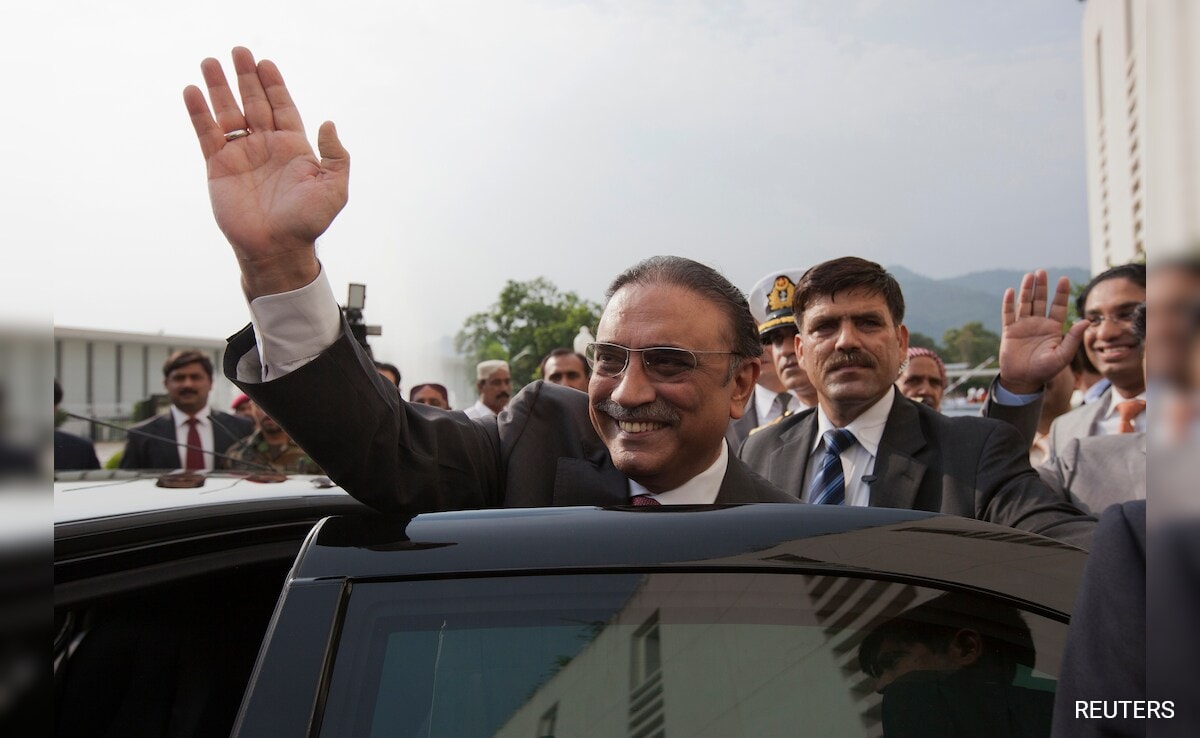
Asif Ali Zardari is one of the richest politicians in Pakistan (File)
Islamabad:
Pakistan’s newly-elected President Asif Ali Zardari on Tuesday announced that he would not draw any salary during his tenure as part of his bid to help the cash-strapped country face the challenging economic hardship.
Mr Zardari, 68, who took oath as Pakistan’s 14th President on Sunday, decided to encourage prudent financial management and not burden the national exchequer, his Pakistan Peoples Party (PPP) said in a statement on X.
“The President considered it essential not to burden the national exchequer and preferred to forgo his salary,” President Secretariat Press Wing said in a press release on Tuesday.
Former president Arif Alvi was drawing Rs 8,46,550 per month, which was fixed by Parliament in 2018. Mr Zardari is one of the richest politicians in Pakistan.
Mr Zardari, co-chairman of the PPP, took oath as President of Pakistan for a second term at a ceremony at Aiwan-i-Sadr in Islamabad on Sunday.
Separately, Interior Minister Mohsin Naqvi, following the steps of Zardari, also decided to forego his salary while in office citing the economic challenges faced by the country.
Taking to X, Mr Naqvi said that he committed to serving the nation in challenging times “in every possible way”.
Mr Naqvi said that he has decided to forego his salary during the tenure. “In these challenging times, committed to supporting and serving our nation in every possible way,” he said in an X post.
Debt-struck Pakistan has been reeling under economic pressure with the price of commodities touching sky-high prices.
The newly elected government needs a new loan from the International Monetary Fund on an urgent basis, and its politicians, who are often super-rich, use such tactics to win support from the impoverished masses.
In February last year, the Cabinet of then-prime minister Shehbaz Sharif gave up their salary and other perks to help the country tackle its possible default on external liabilities.
Addressing the maiden cabinet meeting after inducting 19 members on Monday, Prime Minister Sharif said that the first test of the cash-strapped country’s newly-elected government is to rein in inflation and prices of food items.
Mr Sharif, who was elected for a second term on Sunday, said that bringing inflation under control is the biggest challenge, however, the government together with the provincial administrations would consider ways how to manage the prices of the essentials.
“This is our first test,” he said.
Mr Sharif said Pakistan is facing massive challenges and a “deep surgery” is required to pull the cash-strapped country out of the economic crisis.
Taking stock of the issues and problems affecting the economy and the country, the prime minister asked his Cabinet members to “perform or perish”, saying that the time is “now or never”.
Mr Sharif said the government should make difficult decisions without wasting any time. “Deep surgery is needed as antibiotics will not work,” he said.
He directed the immediate formation of a committee to control the prices of essential food items.
He emphasised that strict action would be taken against unjustified price increases and profiteering in essential commodities.
In response to a recommendation by the Ministry of Commerce, the Cabinet also approved a restriction on the export of onions and bananas until the 15th of next month.
(Except for the headline, this story has not been edited by NDTV staff and is published from a syndicated feed.)




